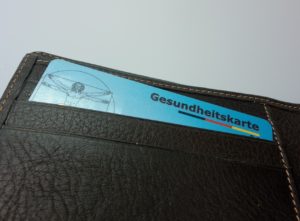We are not financial advisors and therefore cannot give financial advice. The information here should not be seen as financial advice in any way.
Always make informed decisions and speak to a professional when you are unsure.
What is exchange control?
Foreign exchange controls are various forms of controls imposed by a government on the purchase/sale of foreign currencies by residents or on the purchase/sale of local currency by nonresidents.
The South African Reserve Bank (SARB) uses the Currency and Exchanges Act No. 9 of 1933 and its Regulations to control Foreign exchange.
Authorised dealers ensure that their customers comply with the various regulations that control the sending and receiving of funds across South African borders.
ZAR to EUR
When you want to exchange South African Rand for Euros, you should keep the following in mind:
- Your residence status
- The amount of money you want to exchange. Some institutions have a limit on the amount, and some offer better rates for higher amounts
- The purpose of the exchange
- Requirements and regulations from SARS
- Requirements and regulations in Germany
- Tax implications
- The exchange rate. There is a selling and buying rate, and it is not the same as the rate you hear on the news. See for example FNB
- The fees that are payable for the transaction. Some charge a percentage and others a flat rate per transaction.
- The institution you want to use. Make sure it is an authorised dealer. You can find a list of Authorised dealers in South Africa in this document from the South African Reserve Bank.
- Possible hidden fees
Tourism
Please refer to the Travel Allowance section of the following document from the Reserve Bank. Additional Information can be found on the SARS website – Departure from SA page
As a tourist, you can get foreign exchange from authorised dealers in South Africa. The current (2021) limit per year is R200 000, but this can change so please refer to the abovementioned documentation.
You are also limited to R25 000 in Rand notes per person.
You can use a South African credit card outside of South Africa if your bank allows it and if you keep to the above limits.
You will need supporting documentation for example a flight ticket.
For more info – see this page from Travelstart
Residence in Germany
Please refer to the “Residents temporarily abroad” section of the following document for the allowance limits.
Additional Information can be found on the SARS website – Departure from SA page
You are not allowed to use your South African Credit card in your new country of residence.
Emigrating from SA to Germany
Please refer to the “Private individuals who cease to be residents for tax purposes in South Africa” section of the following document.
Additional Information can be found on the SARS website – Departure from SA page
German Regulations
According to the German Foreign Trade and Payments Regulation (Außenwirtschaftsverordnung, AWV), incoming or outgoing payments from abroad must be reported to the Deutsche Bundesbank.
“Pursuant to section 11 of the Foreign Trade and Payments Act (Außenwirtschaftsgesetz, AWG) read in conjunction with section 67 et seq of the Foreign Trade and Payments Regulation (Außenwirtschaftsverordnung, AWV), all residents in Germany (natural and legal persons whose place of residence is in the Federal Republic of Germany) have to report payments of more than €12,500 or the equivalent in another currency which they receive from non-residents (natural and legal persons whose place of residence is outside of the Federal Republic of Germany) or from residents for the account of non-residents (incoming payments) or make to non-residents or to residents for the account of non-residents (outgoing payments).”
Find more information here
Comparison website
- Monito can be used to compare fees and rates, please be careful of hidden fees!!!
Some options to consider
These institutions are not endorsed by us, they are just a list of regular suggestions on our FB page
- South African Bank to German Bank
- Transferwise
- WorldRemit
- Paypal
- Western Union
- Currency Partners
Terminology
| Term | Description |
| SWITFT | Society for Worldwide Interbank Financial telecommunication. |
| SWIFT code | Every Bank has a SWIFT code. Also referred to as the SWIFT code |
| BIC | Bank Identifier code. The SWIFT Address is assigned to a bank in order to send automated payments quickly and accurately to the banks concerned. It uniquely identifies the name and country, (and sometimes the branch) of the bank involved. BICs are often called SWIFT Codes and can be either 8 or 11 characters long |
| IBAN | International Bank Account Number. An international bank account identifier used to uniquely identify the account of a customer at a financial institution |
| BoP Codes | All cross-border transactions must be reported to the South African Reserve Bank in accordance with SARB Regulations. Balance of Payments Reporting (BoP Reporting for short) is an electronic message system used by Authorised Dealers (i.e. Banks) to report cross-border transactions to the South African Reserve Bank (SARB). When completing an application for a cross-border transaction, clients are required to provide the reason/s for the transaction. Use the lists provided to select the correct Inwards or Outward BoP Code/s for your transaction. Please note that a transaction may involve more than one reason |
Businesses listed on our website
The following businesses can assist with Forex and International Money transfers.

Currency Assist
Assisting clients with International Money Transfers to or from South Africa At Currency Assist, we come to work every day striving to find a solution
Related content

Foreign Exchange- EUR to ZAR
We are not financial advisors and therefore cannot give financial advice. The information here should not be seen as financial advice in any way.Always make informed decisions and speak to a professional when you are unsure. What is exchange control? Foreign exchange controls are various forms of controls imposed by a government on the purchase/sale of foreign currencies by residents or on the purchase/sale of local currency by nonresidents. The South African Reserve Bank (SARB)

Financial Emigration
Financial emigration is the process used by many South Africans abroad to formalise their non-resident status for both tax and exchange control purposes. The detail within this post and on this page is not legal or financial advice and should not be construed as such. Please consult a professional advisor to consider the specifics of your personal situation. We accept no liability or responsibility for the correctness of the details within this post. E&OE.” The topic

Income Tax / Lohnsteuer
We receive a lot of questions about income tax declarations and where to get help, especially getting help in English.First I have to state that we are not tax consultants and by German law are not allowed to give any tax advice. You can read more about it here, the article is German but can be easily translated.Basically your immediate family can assist you with your taxes, see the article, but if there is no









You must be logged in to post a comment.